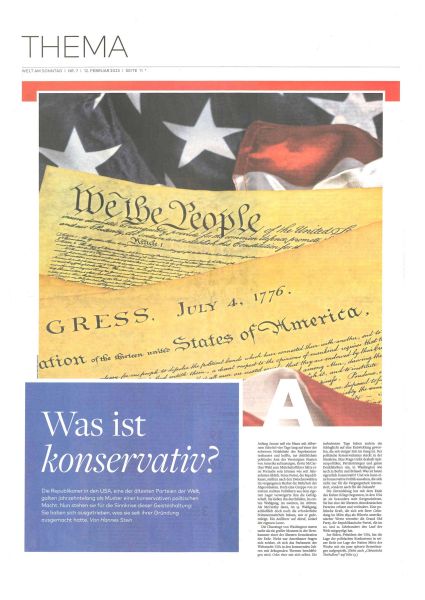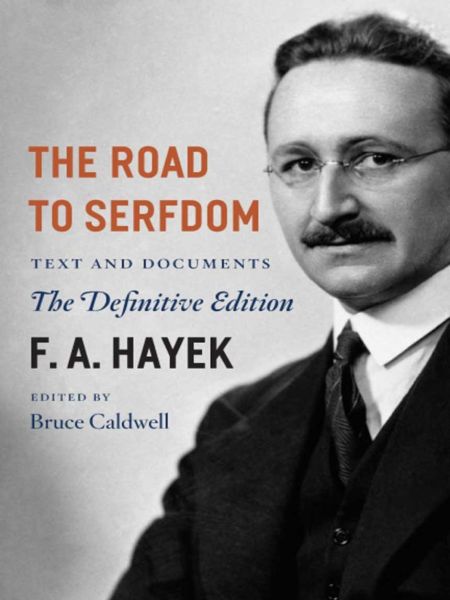What is a conservative?
What is a Conservative?
The article "Was ist Konservativ?" appeared in the Sunday edition of Die Welt on February 12. The words of the title resemble the English so closely, no one should have a problem translating them. Trying to define "Konservativ" as a socio-economic concept should take some time, which most of my readers don't have. If they try to listen to the experts define it, they might find that the experts themselves can't agree on any but the most fundamental statements.
I have done some reading on the definition of "conservative." It has not merely changed since it first came into use in the nineteenth century. It has changed sides, so to speak. Formerly, people used it to define the political forces in a country allied with the monarchy, with the established church, and the military, writes Friedrich Hayek in his book The Road to Serfdom, which he started writing it in 1933 and finished it in 1944.
The term "liberal" has also changed sides. People in the nineteenth century would have described it as the new political force of entrepreneurs, venture capitalists, and financiers—who came to power during the Industrial Revolution—as "liberal," because they favored individual initiative, economic freedom, and independent wealth to counter the traditional conservative power of the monarchy, the military, and the church. The liberals of that time favored constitutional government over leadership by a monarch or a military leader.
When you count the moving parts of politics, remember that a political party also seldom stays still. It experiences changes in leadership—by leaders who want to win elections, rather than maintain a philosophical direction. As the leading personnel change, so does the corporate personality, so that it resembles a professional athletic team.
The leading players perform for the team because their contracts promise them more money. If they do not get the money they want, they change teams. That makes them hardly more than contractual mercenaries. Not only do they not follow a philosophical course, they sometimes skirt the law just to win. Invariably, those "skirts" result in courtroom dramas that belittle the original philosophical intention of the party.
Just as the fans want their team to win, no matter what game-plan they pursue, so do the supporters of a political party. I look at the leading personalities of the Republican Party, and I see see career professionals trying to justify the salary the Party pays them, and to win contests driven more by a personality cult and by a chance to graduate to the Presidency, "the World's greatest power-trip," as one journalist expressed it, rather than to express and implement the traditional philosophy of the party.
I have to admit, I only voted for Trump because I did not want to vote for Clinton or Biden. I chose the lesser of two evils. A political Cold War afflicts our nation, and we need to fix it. I believe that only a division of the nation will result in a ceasefire in the Cold War, once and for all; but in order to make a division meaningful, we have to first delineate the philosophical positions.
We need to focus more intellectual energy on defining ourselves by our political philosophy, not by the rantings of our political party; because the entities do not represent the same things. We need to banish the mercenaries in our Party and concentrate more on the philosophy. The philosophy gives us a reason for winning, a better self-definition than the Party does. In fact, we already have all the definition we need. We just need the Party to give us a starting-point.


